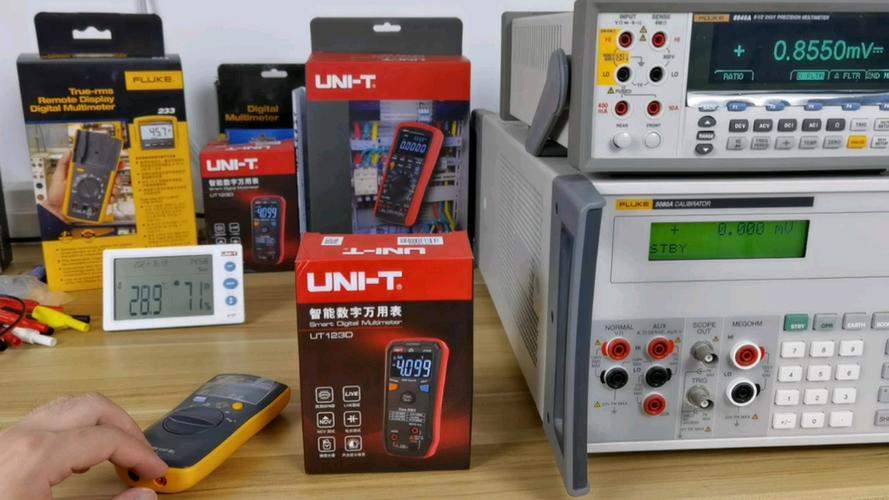Fluke vs Unit: A Comprehensive Comparison
When it comes to electrical testing equipment, two names often come to mind: Fluke and Unit. Both brands are renowned for their high-quality products, but which one is the right choice for you? In this detailed comparison, we’ll explore the features, specifications, and performance of Fluke and Unit meters to help you make an informed decision.
Brand Overview
Fluke Corporation is an American company that specializes in the design, manufacture, and supply of electrical test tools and software. They are known for their innovative products and commitment to quality. On the other hand, Unit Instruments is a Chinese company that has gained a reputation for producing affordable and reliable electrical test equipment.

Design and Build Quality
Fluke meters are typically known for their rugged design and build quality. They are often heavier and more robust, which can be beneficial in harsh environments. Unit meters, while still durable, may be slightly lighter and more compact, making them easier to carry around. Here’s a quick comparison of the design and build quality of Fluke and Unit meters:
| Fluke | Unit |
|---|---|
| Rugged and durable design | Lighter and more compact |
| Higher build quality | Competitive build quality |
Features and Specifications
One of the key factors to consider when comparing Fluke and Unit meters is their features and specifications. Let’s take a closer look at some of the key aspects:
Fluke Meters
Fluke meters are known for their advanced features and high accuracy. They often come with a wide range of measurement capabilities, including AC/DC voltage, current, resistance, capacitance, frequency, and temperature. Additionally, many Fluke models offer features like data logging, wireless connectivity, and built-in software for analysis and reporting.
Unit Meters
Unit meters, while not as feature-rich as Fluke models, still offer a good selection of measurement capabilities. They typically include AC/DC voltage, current, resistance, and temperature measurements. Some Unit models also offer data logging and wireless connectivity, but the overall feature set may be more limited compared to Fluke.

Accuracy and Calibration
Accuracy is a crucial factor when choosing an electrical test meter. Fluke meters are known for their high accuracy, with many models offering Class 0.1 or Class 0.05 accuracy. Unit meters also offer good accuracy, but they may not match the precision of Fluke models. It’s important to consider the calibration requirements of your application and choose a meter that meets those needs.
Price
Price is another important consideration when comparing Fluke and Unit meters. Fluke meters are generally more expensive, with entry-level models starting at around $100 and professional-grade models costing several thousand dollars. Unit meters, on the other hand, are more affordable, with entry-level models available for as low as $50. This price difference can be significant, especially for budget-conscious buyers.
Customer Support and Warranty
Customer support and warranty are also important factors to consider when choosing an electrical test meter. Fluke offers excellent customer support, with a wide range of resources available, including online tutorials, forums, and technical support. Unit Instruments also provides customer support, but the level of service may vary depending on the region.
Conclusion
In conclusion, both Fluke and Unit meters offer reliable and accurate electrical testing solutions. Fluke meters are known for their advanced features, high accuracy, and rugged build quality, making them a great choice for professional users. Unit meters, while more affordable, still offer good performance and are suitable for a wide range of applications. Ultimately, the best choice depends on your specific needs, budget, and preferences.